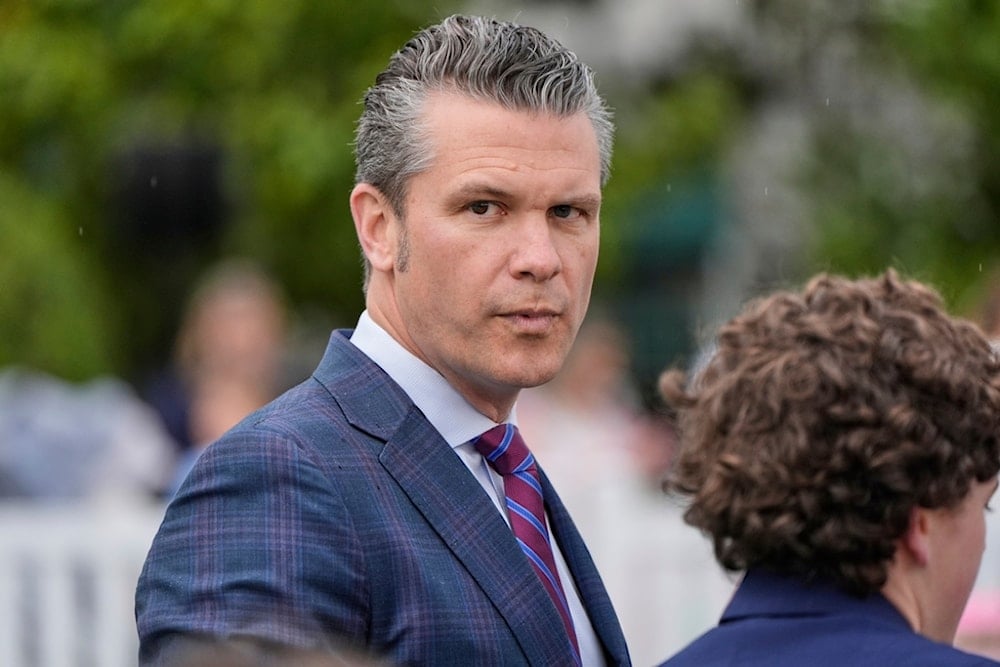US no longer sole guarantor of European security: Hegseth
US Defense Secretary Pete Hegseth urges Europe to take greater responsibility for its defense as Washington shifts toward a more balanced, reciprocal role in NATO.
-

Defense Secretary Pete Hegseth arrives on the South Lawn of the White House before President Donald Trump and first lady Melania Trump participate in the White House Easter Egg Roll Monday, April 21, 2025, in Washington (AP Photo/Alex Brandon)
In remarks delivered Wednesday at the US Army War College, Defense Secretary Pete Hegseth made clear that the United States no longer intends to shoulder the primary responsibility for European security.
"The time of the United States to be a sole guarantor of European security has passed," Hegseth said, urging European nations to take a more assertive role in managing their own defense. His comments come at a moment when US foreign policy is undergoing a strategic shift—one increasingly defined by recalibrated alliances, burden-sharing, and a pivot away from transatlantic dependencies.
This sentiment aligns closely with the views expressed by Vice President J.D. Vance in a recent UnHerd interview and at the Munich Security Conference, where he warned Europe against acting like a "vassal" and called for greater sovereignty in defense matters.
According to a recent analysis by Izvestia, the US is not abandoning Europe but rebalancing its role, transitioning from post-WWII security provider to a more transactional partner expecting reciprocity.
Hegseth reiterated Washington's longstanding demand for NATO allies to raise their defense spending. "We have made the same call to our allies. Two percent [defense spending] is not enough considering the threat you face," he said, praising countries like Poland that have committed to spending 5% of their GDP on defense. "Poland and some others have already stepped up. It's time the rest do the same." This mirrors the 5% target often pushed by former President Donald Trump, who criticized allies for failing to share the burden of collective defense.
Read more: Italy to hit NATO defense target by revising spending criteria
The shift comes as the US reorients its global posture, increasingly focusing on the Indo-Pacific amid rising tensions with China. As noted in the Izvestia report, Washington's geopolitical strategy is now shaped by a combination of strategic self-interest, ideological divergence from the EU, and an inclination toward bilateralism over bloc-based diplomacy. This pivot is leading to what analysts are calling a "cold realignment," a fundamental, if quiet, redefinition of US-Europe relations.
The broader implication is a transformation in NATO's operational logic. Rather than acting as a transatlantic security umbrella underpinned by unconditional American support, the alliance is being reshaped into a more equal partnership. US officials no longer frame military support as a guarantee, but as a reciprocal arrangement that must be met with equivalent commitment from allies.

 3 Min Read
3 Min Read










